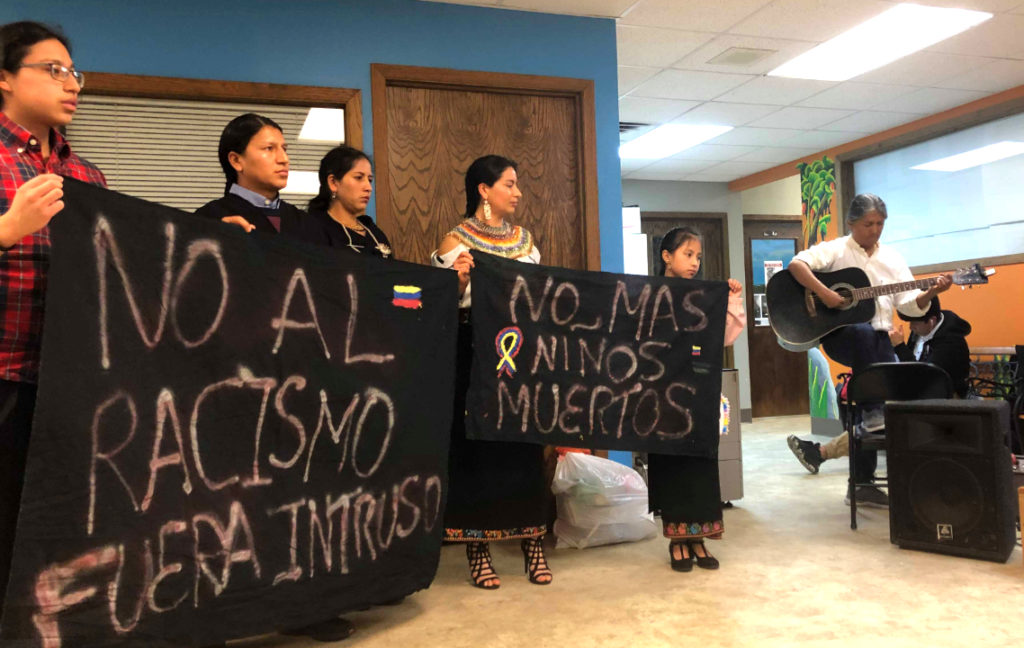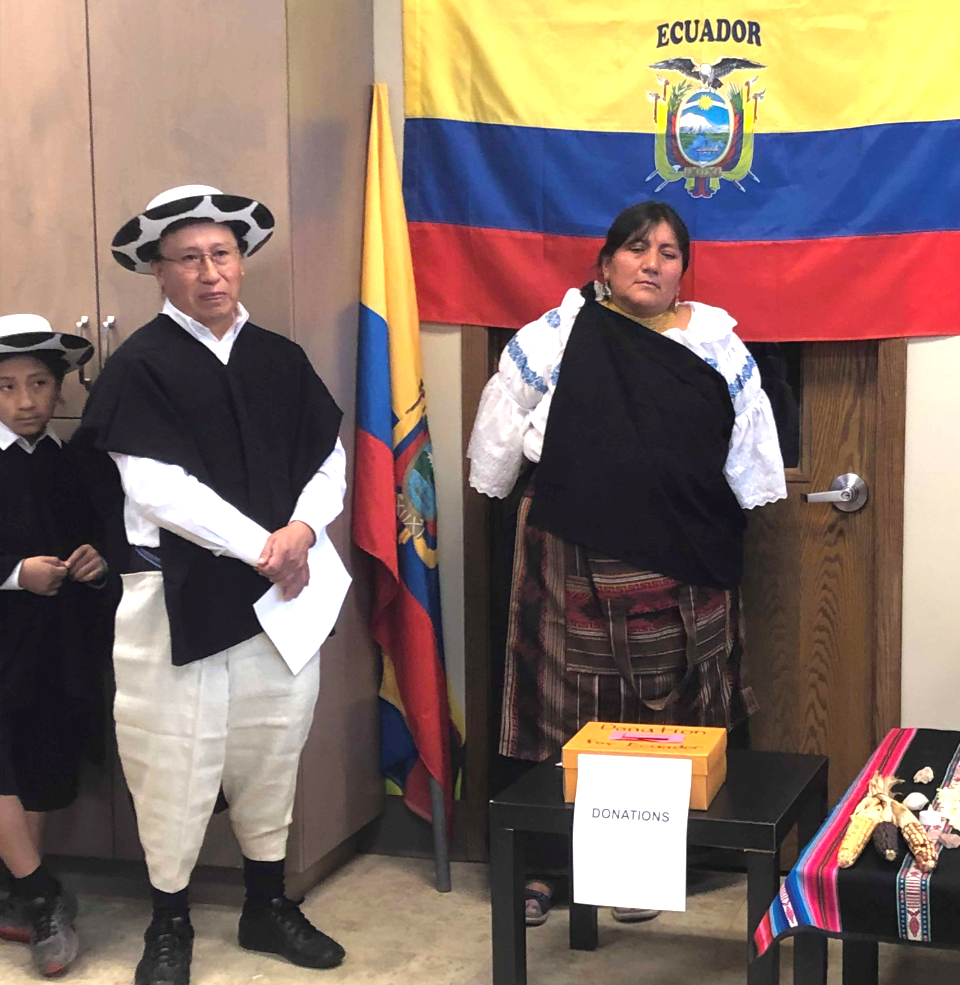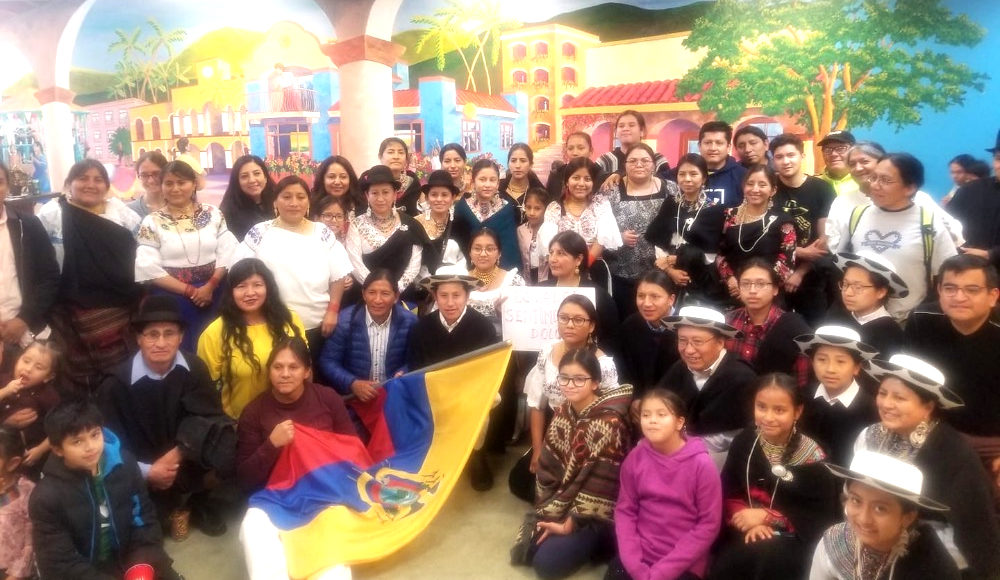Indigenous people have been at the heart of the recent mass protests that have been going on in Ecuador, which have been the largest people have seen in more than a decade. On Oct. 13, people in the greater Madison community came out in force to support that Ecuadorian indigenous community in a gathering at Centro Hispano of Dane County.
Over the past two weeks, groups representing the Ecuadorian indigenous community have led protests in the streets in the capital Quito over the austerity package that have disproportionately affected the nation’s poorest people. The policies implemented by the Ecuadorian President Lenin Moreno’s government, who recently announced an end to fuel subsidies, has led to multiple protests. Those protestors have faced violent repression from military forces. All told, seven people have died.
“What they were doing was creating a lot of unjust poverty and inequality for the people of Ecuador, especially for the most marginalized,” Nazca Serrano, organizer of Sunday’s event, tells Madison365. “So, at the event at Centro, we focused on talking about how the movement of the people started that took to the streets of Quito in October and the things we could do to help.”

The unrest began after President Moreno ended government subsidies that have helped keep fuel prices low in Ecuador for some 40 years. Overall, the protests have been successful and have forced the government to cancel planned austerity measures and withdraw from the $4.2 billion International Monetary Fund loan, known as Decree 883.
“That move would have lifted the subsidy in Equador meaning that the costs of oil would go up. Given that the country’s poverty rate is so high, that just would not work for the people of Ecuador,” Serrano says. “Especially for the people who are in indigenous communities located outside of the city. The only way they can make money is through farming and harvesting, so that particular decree was an attack on the most marginalized people.”
The event at Centro Hispano was a chance to eat delicious Ecuadorian food, listen to music, and be at a space to hear from various members of the community. It was also a chance to provide some more information on the crisis in Ecuador. Serrano says that the mainstream media in Ecuador has ignored the humanitarian crisis but it was made known to the world by independent media. “We also talked about how the movement was radicalized by indigenous people. The first people to respond were indigenous people who said, ‘This is another attack just like it has been since 1970,'” she says.
President Moreno had issued a 60-day state of emergency and temporarily moved the seat of government from Quito to the coastal city of Guayaquil during the protests.
“These are mostly folks who live on the outskirts – we call them Campesinos. Those were the first people that marched,” she adds. “They convened all the way in Quito which for some people was a walk of three days. For most people, that was on foot.”

They’ve started a crowdfunding campaign that will go directly to impacted indigenous communities, groups, organizations, and individuals on the ground currently in need of relief in Quito. The funds will go to support the purchase of clothes, blankets, food, medicine, towels, face masks, hygiene products, etc.
“This will hopefully be a permanent stream that will help the people of Equador even after this current crisis,” Serrano says.
Serrano says that she is a Kichwa woman who has lived in Madison for 17 years. She has indigenous family and friends back in Ecuador who live in Quito who have been affected by the crisis.
“I think we really needed to make sure that we showed our support and that we centered the lives and the bodies of indigenous people,” Serrano says. “We needed to make sure that we made space for people to process, we needed to make space for people to be in community and we needed to make space for people to know that the Ecuadorian community at large here in Madison is supporting us so that we’re not feeling that sense of loneliness and hopelessness.”










